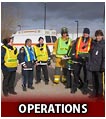




Home > Critical Incident Stress Management > Common Critical Incident Stress Reactions



What are the Most Common Critical Incident Stress Reactions?
The most important concept in understanding the reactions to Critical Incident Stress is that we are talking about normal people having normal reactions to abnormal events. Almost every reaction experienced by an emergency services worker, whether physical, emotional, psychological, cognitive or spiritual must be examined within this context. What may, in other circumstances, appear to be “abnormal” or “pathological” behavior is a completely appropriate and expected reaction after experiencing a critical incident. These reactions may be mild or intense and occur within the first few hours or weeks after the incident is over.
Although the majority of these reactions are usually normal, some reactions may be indications of more significant problems that may require professional assistance. If you have any questions about your reactions please seek assistance as soon as possible. Delaying appropriate professional help may make a situation worse. Access to professional help may be through Employee Assistance Programs, Regional Health Authorities Mental Health services, private practice clinicians, clergy, etc. In case of an emergency the following resources are available: www.gov.mb.ca/health/mh/crisis.html
Within the first few hours a number of reactions may occur. These initial reactions are primarily physical and perceptual in nature as a result of the “fight or flight” instinct that has been aroused by the incident. These may include the following reactions:
More intense reactions are also possible within the first few hours. The nature of these reactions is usually related to the intensity of the incident as well as the emergency services worker’s current situation. These can include the following reactions:
After a few days the CIS reactions may continue. As time goes on the physical/perceptual reactions begin to lessen as the body begins to return to its normal level of functioning. The remaining physical reactions are those we normally associated with high levels of stress.
However, we also begin to see a general increase in the psychological or emotional reactions caused by the critical incident. This is primarily due to the fact that as time goes on we begin to “process” the events and begin to fully embrace our experiences. Initially, the emergency services worker would likely be in a state of “shock” or “disbelief” and not begin to “feel” the impact until s/he has had time to think about the event. For example, we usually stay busy throughout the day with all the things that are required of us in our daily routines. It isn’t until our “head hits the pillow” that we have time to reflect upon what we have recently experienced.
These reactions typically involve:
As time goes on the physical reactions continue to lessen. The most common ones being sleep difficulties and other “avoidance” types of behaviors may continue for a period of time. However, the psychological and emotional reactions continue and may even become more intense. It is important to realize that may of these reactions may appear to be “abnormal” or “pathological” if they are looked at in isolation. It is also important to realize that these normal reactions can have a negative impact in the home or workplace if they are not acknowledged and understood as being normal and that they will (in almost all cases) lessen after a period of time.
Problems may occur when these reactions persist or when the emergency services worker /hospital staff uses inappropriate methods to deal with these reactions. Problems in the home or workplace may occur when the significant others in their lives do not understand where these reactions originate or when appropriate communication does not occur. It is important that other people in the emergency services worker life recognize and understand that these normal short-term reactions are a result of the incident. These reactions may include:
CISM team 24-hour emergency hotline at 1-888-389-3473